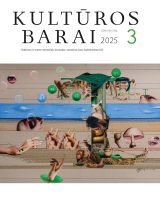Victor Tsilonis
is NEWLAW’s managing partner, Greece’s nominee for the 2020 ICC
judicial elections, praised by the independent Advisory Committee on the Nominations of Judges, and distinguished member of the International Criminal Court Bar Association, serving twice as vice-president and three times as chair of the Professional Standards Advisory Committee. He has co-drafted 27% of ICC Disciplinary Organs’ published decisions and was an adjunct lecturer at the
Hellenic Open University. He wrote ‘The Jurisdiction of the International Criminal Court’ (Springer, 2nd edition, 2024) covering crucial legal challenges, including lethal automated weapon systems-AI, cyber warfare and ecocide.
He is also editor-in chief of Eurozine’s Greek partner journal Intellectum, a writer (aka poet Konstantinos Melissas) and translator. In October 2024 he was awarded the Hans Günter Brauch International Scientific Prize for Peace and Ecology in the Anthropocene Era for his contributions to the legal discourse on ecocide and the International Criminal Court.
Articles

Spelling out a law for nature
How to squeeze civilizational change into precise legal frameworks
As police carry away protesters blocking oil carriers, a very detailed and technical debate is unfolding about the framework to introduce the notion of ecocide in international criminal law. Social scientists and legal experts debate the approach, and Victor Tsilonis cautions them to always consider practical applications.

The egregious crimes against Ukraine’s civilian population might just be too much for the International Criminal Court to handle. Not only does it lack resources but it also doesn’t have jurisdiction over the crime of aggression – in part due to the position of its most influential member states and the Trump administration’s staunch opposition.

The true importance of European politics
Greece, Lithuania and Denmark after the EP elections
The results of Greece’s snap general election, triggered by Syriza’s defeat in May, are eagerly awaited. Support for the far-right Danish People’s Party has collapsed, while Lithuania has grown more conservative. But isn’t there more to European politics than national swings and roundabouts?

Degrees of unity
Greece, Portugal and Germany before the EP elections
The outcome of this year’s European elections is more likely to be determined by the state of nations’ finances than their media landscapes. However, the making and breaking of coalitions is something that money still, it seems, cannot buy.
The struggle of opposites
On the most discussed book in Greece of recent years
From 1975 until 2002, the terrorist activities of the revolutionary organization 17 November, or “17N”, preoccupied Greek public opinion and the secret services of several states. Victor Tsilonis critiques the first book offering a view “from within” 17N, by offender-author Dimitris Koufontinas.

The power of minus
Using guerrilla tactics in a state close to collapse
The periodical translation of news into words and the associated analysis that constitutes the print medium, writes Victor Tsilonis, is no longer enough. It cannot attract a wider audience. The answer: humorous, issue-specific poster, social media and video campaigns.
"Meritocracy is a ghost"
Intellectum, Greece
With sharp drops in advertising revenue and drastic public cuts, the financing system for Greek journals has never been less transparent. As the “networking” factor attains new levels, meritocracy seems a far-off dream says Intellectum editor Victor Tsilonis.
‘The bubble has burst in our faces’
An interview with journalist Stelios Kouloglou
The Greek media “failed completely” to predict the consequences of debt-fuelled reality loss, says journalist Stelios Kouloglou in interview with Intellectum editor Victor Tsilonis. The very sector whose job it was to burst the bubble played a major role in creating and preserving it, he argues.
The lady anatomist
Interview with Sue Black
“Sometimes we forget that maybe we need to ask more questions about the situation we are getting into. Then we have the right to say no.” In 1999, forensic anthropologist Sue Black joined a British UN Forensic Team investigating mass graves in Kosovo, and has since been to Sierra Leone and Iraq. She talks to the journal Intellectum about how she came to work in warzones, and why, despite everything, she loves what she does.





